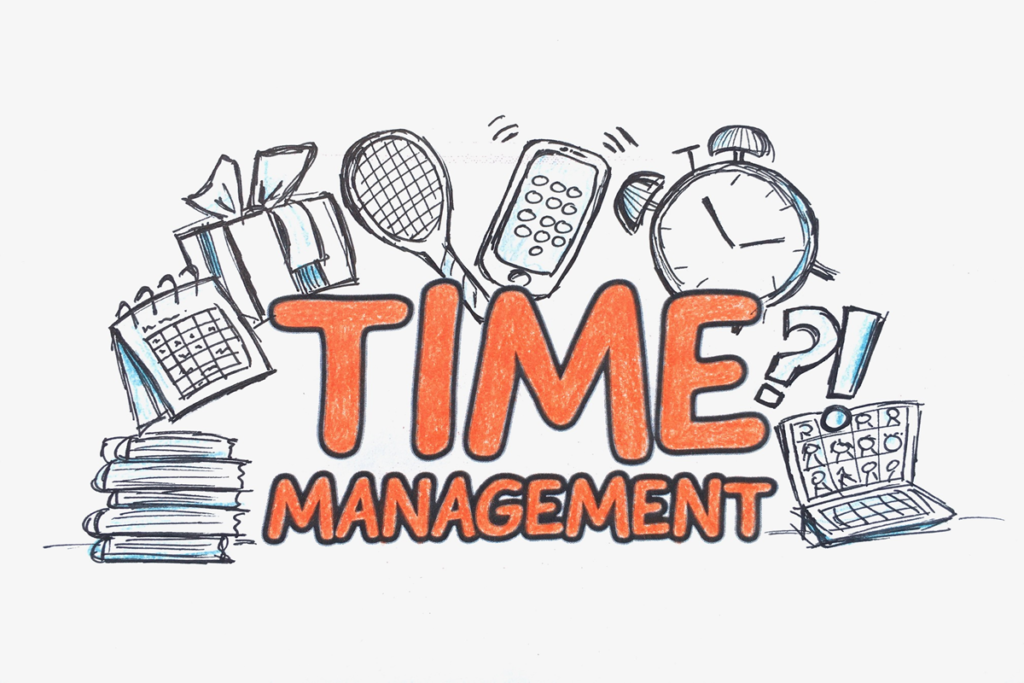Understanding Time Management
Tips, Techniques, & Tools for Effective Time Management – Effective time management is the art of planning and controlling how you spend your day to accomplish your goals. It involves organizing tasks, prioritizing them, and ensuring that your time is used efficiently. Good time management enables you to work smarter, not harder, and ultimately helps you achieve more in less time, reduces stress, and improves your overall quality of life.
Why Time Management is Essential
Poor time management often leads to procrastination and missed deadlines, which can directly impact productivity and quality of work. Conversely, when you implement effective time management strategies, you can approach tasks with focus and clarity, reducing the likelihood of feeling overwhelmed. By setting clear objectives and organizing tasks efficiently, you not only improve your own productivity but also enhance your team’s performance and morale.
The Impact of Effective Time Management
Effective time management allows you to meet deadlines, achieve goals, and maintain a balanced life. It helps in breaking down complex tasks into manageable steps, making them less intimidating and more achievable. By planning and managing your time well, you can ensure that both individual and organizational objectives are met, leading to improved performance and reduced stress levels.
For more tips and insights on managing your time effectively, subscribe to our newsletter and stay updated with the latest strategies and tools.
Tips for Managers
- Goal Setting and Prioritization
- Define Objectives and Targets: Start by clearly establishing what your organization aims to achieve. Define both long-term and short-term goals, and make sure they are specific, measurable, achievable, relevant, and time-bound (SMART). Share these objectives with your team so that everyone understands the targets and knows what success looks like.
- Prioritization Framework: Implement a system to prioritize tasks and projects based on their urgency and importance. Use frameworks like the Eisenhower Matrix, which categorizes tasks into four quadrants: urgent and important, important but not urgent, urgent but not important, and neither urgent nor important. This helps in focusing on high-impact tasks and avoiding distractions.
- Task Breakdown and Delegation
- Project Decomposition: Large projects can be overwhelming, so break them down into smaller, actionable tasks. This approach makes it easier to manage and track progress. Create a detailed plan outlining each step required to complete the project, and assign deadlines to each task.
- Strategic Delegation: Delegate tasks to team members based on their strengths, skills, and expertise. Effective delegation not only helps distribute the workload but also empowers team members by giving them ownership of specific tasks. Provide clear instructions and expectations, and ensure that you follow up regularly to monitor progress.
- Scheduling and Time Tracking
- Create Workflows: Develop a clear workflow for each project or task. Use project management tools to create timelines, set deadlines, and visualize the entire process. Tools like Asana, Trello, or Microsoft Project can help in managing tasks and keeping track of progress.
- Time Monitoring: Encourage your team to track the time they spend on different tasks. Time-tracking tools like Toggl or Clockify can provide valuable insights into how time is being spent. Analyzing this data helps identify inefficiencies, areas for improvement, and allows for better planning in the future.
Tips for Employees
- Daily Planning and Prioritization
- Task Review: Begin each day by reviewing your to-do list and prioritizing tasks. Identify the most important and urgent tasks that need to be completed first. This approach helps you focus on what matters most and ensures that critical tasks are addressed promptly.
- Daily Planning: Plan your day in advance, either the night before or first thing in the morning. Allocate specific time blocks for each task or group of tasks. This helps in creating a structured approach to your workday and minimizes the likelihood of procrastination.
- Time Blocking
- Dedicated Time Slots: Use time blocking to allocate specific periods for focused work on particular tasks. For example, set aside 30 minutes in the morning for writing reports and another hour in the afternoon for attending meetings. Time blocking helps in managing distractions and ensures that you dedicate sufficient time to each task.
- Avoid Multitasking: Multitasking can reduce efficiency and lead to mistakes. Focus on one task at a time to improve the quality of your work and complete tasks more quickly. By concentrating on a single task, you can achieve better results and minimize errors.
- Managing Distractions
- Identify Distractions: Recognize common distractions that impact your productivity, such as social media, emails, or noisy environments. Take steps to minimize these distractions by creating a dedicated workspace, turning off non-essential notifications, and using tools like website blockers to stay focused.
- Set Boundaries: Communicate your work hours and availability to colleagues and family members. Setting boundaries helps in creating a clear separation between work and personal life, allowing you to concentrate better on tasks during work hours.
- Regular Breaks and Self-Care
- Take Regular Breaks: Incorporate short breaks into your work routine to rest and recharge. Techniques like the Pomodoro Technique, which involves working for 25 minutes followed by a 5-minute break, can improve focus and productivity. Regular breaks help prevent burnout and maintain overall well-being.
- Practice Self-Care: Ensure you prioritize self-care activities such as exercise, healthy eating, and sufficient sleep. Taking care of your physical and mental health enhances your ability to manage time effectively and perform at your best.
- Reflect and Adjust
- Review and Reflect: At the end of each week or month, review your accomplishments and assess how well you managed your time. Reflect on what worked well and identify areas for improvement. Adjust your time management strategies based on these insights to continually enhance your productivity.
- Seek Feedback: Ask for feedback from colleagues or supervisors on your time management skills. Constructive feedback can provide valuable perspectives and help you identify additional areas for improvement.
Tools for Effective Time Management
- Project Management Software: Tools like Asana, Trello, and Microsoft Project help in organizing tasks, setting deadlines, and tracking progress. They offer features for creating workflows, assigning tasks, and collaborating with team members.
- Time-Tracking Apps: Apps like Toggl, Clockify, and Harvest allow you to monitor how much time you spend on various tasks. They provide insights into productivity and help in identifying time-wasting activities.
- Calendar Apps: Google Calendar and Microsoft Outlook Calendar help in scheduling tasks, setting reminders, and managing appointments. They allow you to visualize your schedule and allocate time for specific activities.
- Distraction Blockers: Tools like Freedom and StayFocusd help in blocking distracting websites and apps, allowing you to maintain focus on your tasks.
- Note-Taking Apps: Evernote and Microsoft OneNote are useful for jotting down ideas, creating to-do lists, and organizing information. They help in keeping track of tasks and ensuring nothing is overlooked.
Mastering time management is essential for enhancing productivity, reducing stress, and achieving your goals. By implementing effective time management strategies and utilizing the right tools, both managers and employees can optimize their approach to work. Remember to set clear objectives, prioritize tasks, and use techniques like time blocking and regular breaks to stay focused and efficient. Continuously reflect on your time management practices and make adjustments as needed to continually improve.
For more tips and insights on managing your time effectively, subscribe to our newsletter and stay updated with the latest strategies and tools. Feel free to share your thoughts and feedback in the comments section below!





